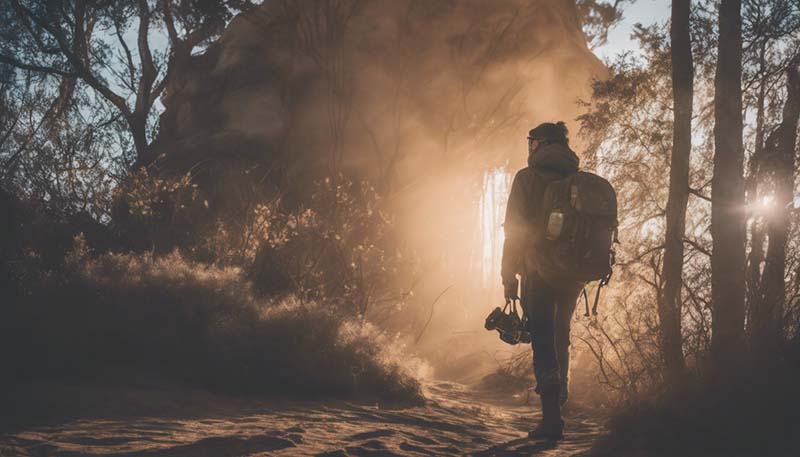# Solo Travel in Hostile Environments: How to Stay Safe and Enjoy the Experience
Solo travel can be an exhilarating experience, offering a sense of freedom and adventure that is hard to match. However, when venturing into what might be considered a hostile environment, the stakes are higher, and the need for preparation and safety measures becomes critical. This article outlines strategies for staying safe while still enjoying the unique challenges and rewards of solo travel in less hospitable regions.
Understanding the Environment
Research Thoroughly
Before embarking on your journey, it's essential to understand the environment you're entering. This includes the geography, climate, local laws, and cultural norms. Use reputable sources, such as government travel advisories, to gather information on potential risks.
Consult with Experts
Reach out to travel agencies, local embassies, or experts who have experience in the region. They can provide insights that aren't readily available through general research.
Advertisement
Learn the Language
Even basic knowledge of the local language can be invaluable. Learn common phrases and words that could be useful in an emergency or for everyday interactions.
Preparing for the Journey
Physical Fitness
Ensure you are physically prepared for the demands of your trip. This might include training for endurance, strength, or altitude if applicable.
First Aid and Survival Skills
Take a first aid course and learn basic survival skills relevant to your destination, such as water purification, navigation, and emergency signaling.
Appropriate Gear
Pack appropriate clothing and gear for the environment. This includes layers for temperature fluctuations, sturdy footwear, and equipment for navigating the terrain.
Insurance and Documentation
Secure comprehensive travel insurance that covers medical evacuation and repatriation. Keep copies of important documents, including your passport and visa, in a secure location.
Communication
Ensure you have reliable means of communication. Satellite phones or personal locator beacons can be lifelines in remote areas.
Local Contacts
Establish contacts with local guides or fixers who can assist you in case of an emergency or to navigate cultural nuances.
Staying Safe During Travel
Travel Smart
Avoid traveling alone at night or in isolated areas. Stick to well-traveled routes and maintain a low profile.
Trust Your Instincts
If a situation feels unsafe, it probably is. Don't hesitate to remove yourself from potentially dangerous scenarios.
Stay Connected
Regularly check in with someone who knows your itinerary. This could be a family member, friend, or travel partner.
Cultural Sensitivity
Be respectful of local customs and traditions. This can help you avoid unintentional offense and potential conflict.
Health Precautions
Take necessary health precautions, such as vaccinations and carrying a basic medical kit with any prescription medications.
Emergency Plans
Have a plan for various emergency scenarios, including natural disasters, health crises, or encounters with wildlife.
Enjoying the Experience
Embrace the Local Culture
Engage with the local culture through food, music, and social events. This can enrich your travel experience and create lasting memories.

Document Your Journey
Keep a travel journal or blog to document your experiences. This can serve as a record of your adventure and a way to share your story with others.
Flexibility
Be flexible with your plans. Sometimes, the most memorable experiences come from unexpected detours.
Photography
Capture your journey through photography, but always ask for permission before taking pictures of people, especially in sensitive or traditional settings.
Mindfulness
Practice mindfulness to fully immerse yourself in the experience and to handle stress or uncertainty with calmness.
Reflection
Take time to reflect on your experiences and the personal growth that comes from overcoming challenges.
Conclusion
Solo travel in hostile environments can be a transformative experience, offering a unique perspective on the world and oneself. By preparing thoroughly, respecting the local culture, and maintaining a strong focus on safety, you can minimize risks and maximize the rewards of your adventure. Remember, the goal is not just to survive the journey but to thrive and enjoy every moment of it.
This article is intended as a starting point for those considering solo travel in challenging environments. It's important to tailor your preparations to the specific location and conditions you'll be facing. Always err on the side of caution and prioritize your safety above all else.
Comment